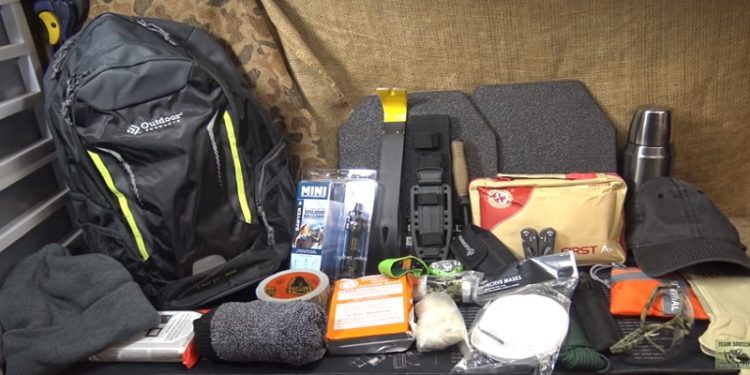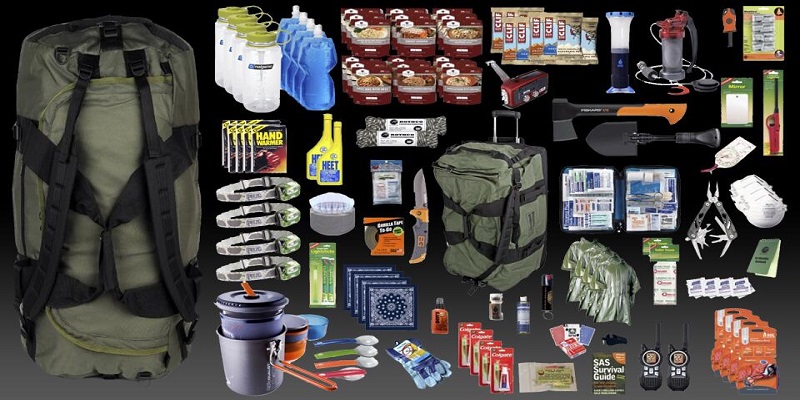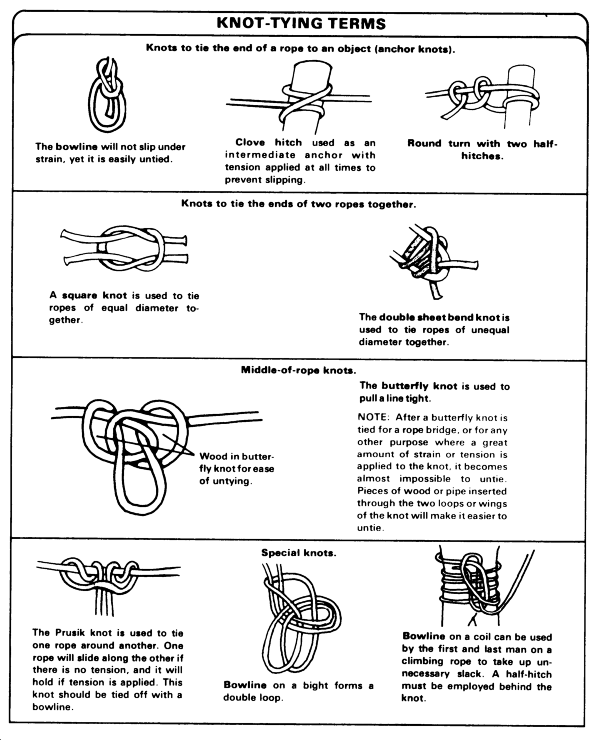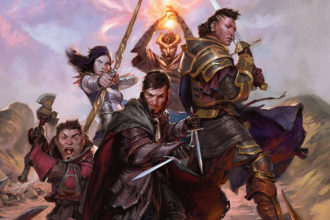Playing in a Prepper & Survivalist Campaign P2

What happens in the case of the collapse of society? Such things have happened in the past and are sure to happen again. Last time we compared and contrasted preppers and survivalists, talked about societal collapse, preparations made, skills the characters have, the difference between sheltering in place and bugging out, why the characters are working together, opening and stabilization phases, and reintegration. This time will cover the generation of these things.
Bug Out Bag (BOB) Necessities
Note: the “you” in this list is your character/ an NPC. Because “preppring/ survivalism” is a relatively new concept, this article is going to assume that anyone doing this will be in modern times.
- Your BOB of Choice. A BOB should be comfortable enough to wear on your back all day, but not so unwieldy that it can’t be carried at one’s side. A good bag should have a strap that can be cinched at the waist to help provide support. You may want to consider one with an internal frame, but keep in mind that the frame also has the drawback of having extra weight.
- At least 100’ Rope. It’s a good idea to carry more rope, if you can. Rope is another necessity; it’s useful for keeping things off the ground (such as food) and, if necessary, tying up someone who is a danger to you, or if you remember how to tie lashings, a lean-to. Many time’s it’s also flammable, so in a pinch, it can be used as kindling. Some sites suggest paracord, saying it’s sufficiently durable for anything you might face, while others suggest climbing ropes as a better alternative. Whatever type of rope you choose, be on the lookout for frays, areas of wear, as the rope may not work as intended.
- Space-age Blanket are those blankets that are made of silvery material that are super insulating, though tend to be a one-time use thing.
- A Tarp is another handy item to have, as they tend to be a bit sturdier than blankets. They’re also waterproof. Purchase one with grommets or install your own.
- Ground Pad to keep you off the ground, as well as blankets (preferably wool) to keep you warm. Or a sleeping bag suited to the weather you’re expecting if it’s going to be particularly cold. Make sure you can actually fit into the sleeping bag if you buy one, as that might be your bed for a time.
- Water, Purification, & Water Storage
- Drinking Water (3 quarts or liters). In the event of an emergency, drinking water is the 2nd necessity for survival. Even after empty, keep the containers for other water you find. If in plastic bottles you can get a plastic bottle cutter to cut the bottles into string. At least one site says the water isn’t truly necessary, as a filter is a better option. Skip bottled if you’re concerned about the weight.
- You can also have a canteen (metal, collapsible, or both) for other water storage.
- Water purification tablets / filters are important after you run out of water.
- Food in the form of something that is either freeze dried, or high in energy, such as protein bars. Don’t bother with canned food, as it weighs considerably more than
- An Eating utensil kits usually contains a fork, table knife, and spoon that interlock. Or perhaps one of those multifunction spork tools.
- P-51 Can Opener. Practice using it before you get into an emergency, so you can get into any cans you’re carrying around with you.
- (Optional) Metal Cooking Pot & Portable stove w/ fuel if you feel you can handle the weight
- Sturdy Frisbee as an edged plate/ bowl as well as a Metal Cup. Don’t take the frisbee if you’re concerned about it being too bulky.
- Clothes need to be multifunctional and adaptable.
- Lightweight Long Sleeve Shirt to keep the chill off you, insects from biting you and the sun from burning you.
- Pants are important as some areas have poisonous plants. Eliminate if they’re too heavy / bulky.
- Underwear if you don’t go commando
- Socks are important if you don’t want blisters
- Medium Weight Fleece for colder weather
- Work gloves are helpful unless you have callused hands. Even if you do, calluses may be insufficient for some of the type of work you may be called to do.
- Rain poncho to keep dry in inclement weather.
- Hat w/ Flex Brim and/ or Tube Scarf.
- Sunglasses – to protect your eyes from the sunlight. If you wear glasses already, consider photosynthic grey tint.
- Fire & Light are the most important things next to shelter and water
- Ignition Source (matches, flint & steel***, lighters – if you want to get fancy, get one of those laser lighters)
- Tinder/ Kindling*** can be as simple as lint in cardboard egg cartons with paraffin wax poured over it
- Candles can be used as a long(ish) method of flame and light
- Headlamps/ flashlights (preferably LED) with plenty of batteries are also important so you don’t go crashing around in the dark.
- A First Aid Kit is important for taking care of scratches, bumps, bruises, pain, and other medical conditions.
- Make sure the first aid kit is stocked with stuff like moleskin for blisters and a sterilized needle if you need to sew yourself up, as well as the basics of bandages, calamine/ anti-itch lotion, bug spray and a CPR face mask.
- Along with the first aid kit, don’t forget both over the counter medicines such as pain, anti-diarrhea, and anti-bacterial ointment, as well as a fee days of prescription medicines so that you can keep in optimal health. If the medicine goes bad after awhile, make sure you rotate new medicine in every so often.
- Hygiene
- All-purpose camp soap (unscented) is important when in the wilderness, so as not to attract insects or wild animals. It might also be useful to know how to clean without soap.
- Travel toilet paper or a travel bidet.
- Feminine hygiene products (if appropriate)
- Protection is important in a bug out scenario because you never know what you’ll run into – whether it’s a crazy person or whether it’s a wild animal looking to have you for its next meal.
- Gun (w/ bullets) is typically the first go to weapon. If you have enough ammo, you can even fire off warning shots without having to worry about needing more bullets anytime soon.
- Survival Knife – while most people don’t want to get up close and personal, if something sneaks up on you, it’s a good thing to have at hand.
- Pepper Spray or Bear Repellant is a good item to have to incapacitate, not kill
- Bang Snaps are useful as a distraction when you don’t want to use lethal force.
- Tools
- Multi-tool. There are several types available like the watch multi-tool and the pliers multi-tool
- A Cell phone with a solar panel charge system will be important if the world’s cell towers don’t go down. Be careful with its use, as you’re extremely trackable when using it
- Emergency Radio w/ Hand Crank
- Paper & Books
- A Pen & Waterproof pad*** is good for taking notes and keeping track of inventory. Note that you might want to have a few: a small one to keep in your pocket for quick notes, and a bit larger one to act as a journal of your experience(s).
- Survival & Personal Document Portfolio includes such things as copies of important documents – insurance, deeds, lease / rental info, identification, etc.
- Playing cards to stave off boredom. Ones with survival tips printed on them doubles their usefulness.
- Mini Survival handbook to double check such things as “is this plant safe to eat” and “now how do I tie the rope around myself, so I don’t fall to my death checking out this hole in the ground?”
- Signaling & Navigation
- Metal Signal Mirror*** to attract attention for searchers above, as well as possibly fascinate or blind wild animals. In a pinch, you can use it to start a fire.
- A Local Area Map is handy to have so you know where you’re at
- A Compass*** is another necessity to use along with the map.
- Emergency Whistle*** can let ground searchers know where you are.
- Latex Tubing is handy for making traps and snares, as well as for use as an emergency siphon.
- Money – even when there’s no society to speak of, cash will always be king.
- $500-$1000 in Small Bills
- Quarters (Qty 8)
- Duct Tape (25’) is the world’s best fix-it substance
- 55 Gal. Contractor Garbage Bag (Qty 2) – for disposal of garbage.
- Resealable Bags – (Qty 5, Various Sizes) to store things.
- Sewing Kit – allows you to mend things
- Fishing Kit – fish for your food
- Non-Lubricated Condoms – for a variety of purposes.
- Binoculars – to see things from afar.
- Military Surplus Survival Wire***
*** All these can be found in one handy location here
With any of these items, if you can find lighter versions or something that can do multiple things at once in order to save weight, it’s a good idea to do so.

10 in Game Skills necessary for survival
- Quick thinking – The ability to think on your feet in a survival situation is vital. Without it you’re dead within a very short timeframe. Most games have a stat for intelligence (book knowledge) and the application of what you know, wisdom. One that goes hand and hand with this is inventiveness: the ability to make use of something you have into something you need.
- Rope use & making – knowing how to make and use a rope for tying knots, lashes, and spelunking.
- First Aid – how to take care of scrapes, cuts, and infections before they turn life threatening
- Foraging – finding what’s available and safe to eat in a given area, as well as how to use the plants for snares, medicines, and dyes.
- Hunting – can be thought of 2 types: snares to catch small game and actively seeking out larger animals to kill for food and warmth.
- Cooking – making nutritious and delicious meals out of what’s found. If food is unpalatable, people will often not want to eat it, even if it’s healthy.
- Navigation – knowing where one is going… and how to get there. This includes such things as reading maps, the use of a compass, and, if on sea, an astrolabe. This also refers to using stars to figure out your location on open water.
- Weaving, Sewing, & mending – while not typically listed as skills per se, these skills are vital because during the collapse of society, you won’t be able to go to the store to replace what gets damaged or destroyed through use.
- Stealth in your chosen environment is another important skill. This not only includes moving quietly through the area, but also leaving little or no traces of having been there through broken twigs and/ or footprints through which to track you.
- Fire-making without the use of matches. Eventually the matches and lighters will run out and you will have to make a fire with just flint and steel or the reflection and magnification of the sun.
I hope that these ideas have given you some ideas on how to run a survival / prepper campaign. As always, feel free to comment, like and reshare.




